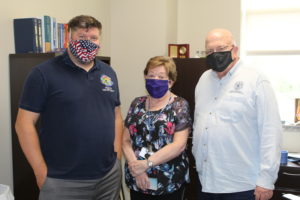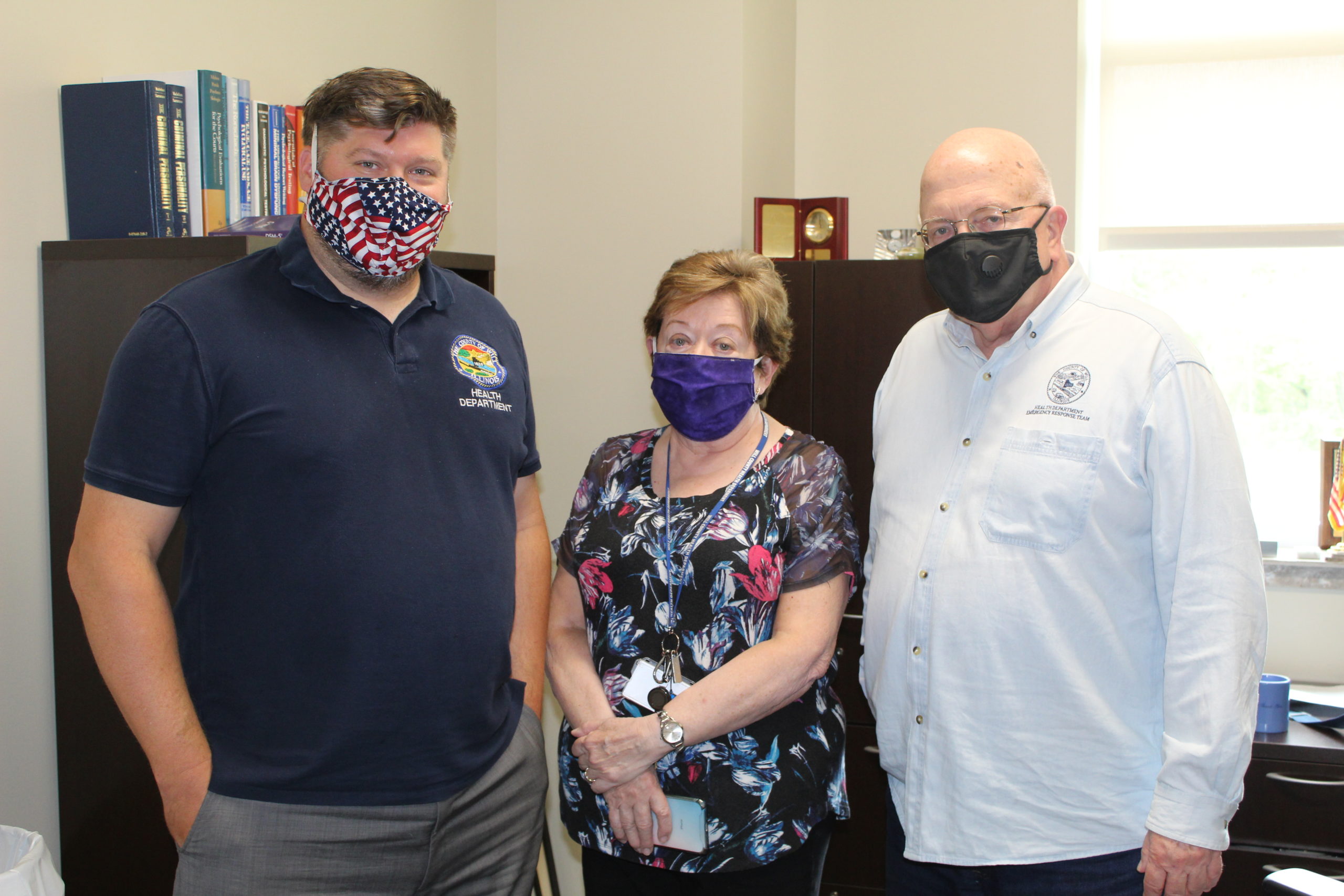While Mental Health Awareness Month has been historically observed throughout the month of May, the Coronavirus pandemic is bringing about questions of whether 2020 should be designated as Mental Health Awareness YEAR. Or even further, perhaps we are entering what should be a Mental Health Awareness DECADE.
“We really haven’t seen this kind of monumental disruption to our lives since World War II,” stated Will County Health Department Behavioral Health Director Dr. Joseph Troiani. “In many ways, we’ve had it easy since then. The Vietnam Conflict, for example, was happening ‘over there.’ Or maybe something like Hurricane Katrina, where the fallout was a specific geographical area. But the fallout from this affects every man, woman, and child in some way. Our routines and lives are being disrupted.”
Dr. Troiani says that in combining all the health and economic impacts, “what we have here is trauma, but not one big shock. Instead, it’s many small micro traumas building up over a period of time. Everything from sickness in your family, to losing your job due to staff cuts, to an elderly relative in a nursing home that you cannot visit.”
Looking back on WWII, Dr. Troiani points out that something happened then which is sometimes difficult to imagine in today’s often divisive atmosphere. “The population was mobilizing, coming together as a team. Eleven percent (16 of 140 million) of the population was in the service. Those who couldn’t do that were planting victory gardens, holding scrap drives; moms were taking jobs in industry, all in the name of getting us through the war.”
When it comes to getting our country through the pandemic, Troiani says a major hurdle is the “psychological concerns of getting past this prolonged crisis. This is national, and everyone can be affected. A report by Bloomberg says 75,000 could die of suicide over the next several years. You have all these increased stress levels and anger, and concerns about things we take for granted, such as schools being open for the children while parents are working, if they still have their jobs. There’s questions like ‘Will my job survive?’ ‘Will my business survive?’ ‘Can my family make it through?’ Mental Health workers are now being called ‘the other first responders.’”
Dr. Troiani also says a very key point is to remember that this is only the start of a new reality. “What we are going through right now is certainly not PTSD (Post Traumatic Stress Disorder). Because as Winston Churchill once said, ‘We are not at the end, we are not in the middle, we are only at the end of the beginning.’”
So how do we, as a society, begin to cope? People certainly want to return to “normal.” But if it appears that “normal” is going to be different, how do we adjust? Dr. Troiani says the overall approach to life can be an important key. “It’s perhaps a matter of stopping to smell the roses and find simple enjoyments. I’ve heard reports that more people are doing things like fishing, hiking, and bird watching; taking more to nature.”
Dr. Troiani says this enjoyment of simple pleasures needs to be balanced by less fear. “We need less selling of fear, such as what you see in some financial commercials. This is especially important for young adults just starting out their working lives during all of this. Remember that it was during the peak of the economic crush of the depression that President Roosevelt said “We have nothing to fear but fear itself.”
Dr. Rita Gray, a Health Department Nurse and Psychologist who has experienced this pandemic as a patient, knows firsthand that overcoming fear is especially challenging. “There are so many complex layers to this. You have the physical symptoms, but then the mental challenges of depression and anxiety. When someone asks ‘Should this patient be a DNR?’ (do not resuscitate), you can only imagine what that does to a family.”
Despite the disagreements you often hear about, Dr. Gray believes our society has done a good job handling this thus far. But there is certainly a long way to go. “There is a learning curve here, and even the experts are learning as we go. We’ve been required to improvise and realize how quickly things change. And for the medical providers, it has been especially challenging. It is even more of a challenge for young providers in the Behavioral Health field. They are dealing with some families that have very complex cases.”
Both at the moment and in the future, Dr Gray says families need to do things that help each other feel better. This can be from old school fun like board games to using social media for the good it can do keeping people together. “For all of us, providers and citizens, I think it’s our job to not just keep ourselves up, but keep those around us up as well.”

(Left to Right) Dr. Scott DuBois, Dr. Rita Gray, and Dr Joseph Troiani are part of the WCHD Behavioral Health Division’s efforts to battle the Mental Health challenges of the pandemic.
Dr. Scott DuBois, Director of Adult Programs for WCHD Behavioral Health, says the best strategy for residents is to “take control of what they can. Everything is so overwhelming right now, and it really is just the end of a new beginning. We can gain a sense of control by helping our community have the resources it needs. Examples could be those that help with food drives or with making and passing out masks. Responding as a community can help us feel better.”
Dr DuBois says Behavioral Health providers themselves have needed to fine tune their approach in these times. “It doesn’t help to ask one of our clients an open question like ‘How are you doing?’ because the human nature response is to just say ‘fine.’ Instead, we are asking specific, targeted questions like ‘How are you doing with your rent payments?’ ‘How is your food supply?’ ‘Are there necessities that you suddenly do not have available now?’ We need to know what kind of specific needs our clients have.”
There are a variety of ways for those who need help to seek it. The Crisis Line of Will County has volunteer operators for telephone counseling and support, and can offer referrals for food and financial assistance, as well as additional counseling. The Crisis line, which can be reached at 815-722-3344, is accredited through the American Association of Suicidology for the intervention and prevention of suicide.
In April, WCHD Behavioral Health became involved with the CALL4CALM line activated in the State of Illinois. Residents needing someone to talk to can text TALK, or HABLAR if their preferred language is Spanish, to 552020. Residents are then contacted on their cell phones and asked to enter their preferred first name (what they like to be called) and their zip code. They then receive a call from someone within 24 hours. (A CALL4CALM land line is available at 1-217-545-5100.)
For additional help from the Will County Health Department, residents can call the Behavioral Health Division at 815-727-8521, or the Community Health Center at 815-727-8670.
Dr. Troiani says a slogan used in Great Britain during WWII is something that can be of assistance in these times. “I believe they would say, ‘Keep calm and carry on.’ I think that’s good advice for right now.”
For more information about Will County Health Department programs, go to willcountyhealth.org.

